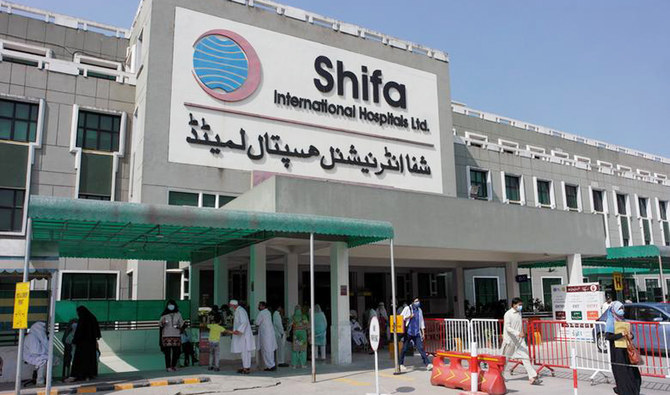China's Contractual Obligations
Immunogenicity and safety of a recombinant adenovirus type-5-vectored COVID-19 vaccine in healthy adults aged 18 years or older: a randomised, double-blind, placebo-controlled, phase 2 trialThis randomised, double-blind, placebo-controlled, phase 2 trial of the Ad5-vectored COVID-19 vaccine was done in a single centre in Wuhan, China. Healthy adults aged 18 years or older, who were HIV-negative and previous severe acute respiratory syndrome coronavirus 2 (SARS-CoV-2) infection-free, were eligible to participate and were randomly assigned to receive the vaccine at a dose of 1 × 1011 viral particles per mL or 5 × 1010 viral particles per mL, or placebo. Investigators allocated participants at a ratio of 2:1:1 to receive a single injection intramuscularly in the arm. The randomisation list (block size 4) was generated by an independent statistician. Participants, investigators, and staff undertaking laboratory analyses were masked to group allocation. The primary endpoints for immunogenicity were the geometric mean titres (GMTs) of specific ELISA antibody responses to the receptor binding domain (RBD) and neutralising antibody responses at day 28. The primary endpoint for safety evaluation was the incidence of adverse reactions within 14 days. All recruited participants who received at least one dose were included in the primary and safety analyses. This study is registered with ClinicalTrials.gov, NCT04341389.CanSino Biologics, China The Lancet
 |
| Courtesy of CanSino Biologics |
China-based CanSino Biologics is the brainchild of Yu Xuefeng, who studied in Canada and earned his doctorate at McGill University. He later was in the employ of Sanofi Pharmaceutical based in Toronto and eventually returned to China where he launched his vaccine business. His links to Canada gained him an insider status. The National Research Council agreed to allow the use of a Canadian-created cell line to aid in the development of a vaccine first for Ebola and following that, SARS-CoV-2.
For reasons known only to Canada's prime minister an agreement was signed with CanSino for collaboration in the development of a COVID vaccine, at a time when relations with Beijing were beyond strained and bad faith was redolent and in full view when the Chinese Communist Party launched its hostage diplomacy initiative by arresting and charging two Canadians in China with security breaches endangering China, and then initiating a trade war.
Canada been burned in the past when dealing with China when Chinese technologists were hired to work for Canada's then-telecommunications giant Nortel Networks attaining positions of trust enabling them to lift trade secrets for their own, and Chinese hackers infiltrated and gained access to Nortel's top executive accounts spiriting away additional Nortel data which eventually helped lead to the company's demise but gaining China's telecommunications industry through Huawei where former Nortel employees worked, the edge they looked for, linked with China's military.
Once again the trusting Canadian government of Prime Minister Justin Trudeau who was personally transfixed with the notion that Canada would benefit hugely by association with China, in lucrative trade deals and investment, laid itself open to expropriation of Canadian technical and scientific expertise, signing a contract with CanSino to test their vaccine at Dalhousie University in conjunction with the National Research Council, which could produce samples of the vaccine. A vaccine which never arrived in Canada, as per the agreement.
 |
| A general view of Shifa International Hospital in Islamabad, Pakistan where a Phase 3 trial of CanSino's COVID-19 vaccine is undergoing trials. (Reuters) |
A vaccine that Beijing refused to allow entry to Canada, while shipping it off elsewhere for testing. "In June, the vaccine (based on the Canadian cell line) was approved for use by Chinese military forces. As for the rights to the cell-line, a comment to Global News from Innovation, Science and Industry Minister Navdeep Bains was 'The NRC (National Research Council) retains the intellectual property related to the cell line, while CanSino in turn owns all intellectual property rights for the vaccines it develops.' Canada cannot claim any revenue if the vaccine proves successful", wrote Radio Canada International journalist Mark Montgomery.
"What exactly motivated Canada to enter into such an unstable partnership in the first place given the dire state of Canada-China relations and the scandalous history of China's vaccine industry?" questioned science writer Iris Kulbatski in the health-care journal Healthy Debate. She quoted Margaret McCuaig-Johnston, former assistant deputy minister in charge of Canada's vaccine collaboration with Beijing, that China's history of creating customs 'obstacles' in any trade disagreements, as leverage was well known.
"McCuaig-Johnston further said that 'China's success in vaccines is standing on the back of Canadian researchers and scientists. Over the years we helped China develop its capacity. But China is no longer a reliable partner." There is, in fact, nothing new about China's penchant for infiltration, sabotage and subterfuge along with the stealth mining of technological and scientific data originating elsewhere, than the ill-gotten gains used by China to further its own interests.
This is merely one more instance in a long history of unprincipled looting of other nations' research and development. With China taking the short-cut route to using others' intellectual property, parading it as their own, and reaping the financial benefits thereof. The question remains: why would this Canadian government see fit, all this being well known, to engage in a contractual agreement with a country that cannot be trusted, with a pharmaceutical company that has direct links to the People's Republic of China's Military?
 |
| Vials of a COVID-19 vaccine candidate, a recombinant adenovirus vaccine named Ad5-nCoV, co-developed by Chinese biopharmaceutical firm CanSino Biologics Inc and a team led by Chinese military infectious disease expert, are pictured in Wuhan, Hubei province, China. China Daily via REUTERS |
Labels: Canada, CanSino Biologics, China, COVID Vaccine, National Research Council

0 Comments:
Post a Comment
<< Home